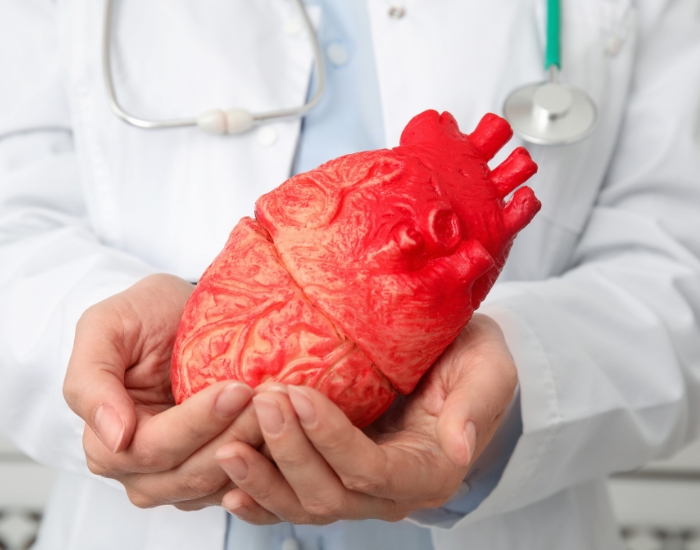Chest pain is one of the most alarming symptoms for patients with heart failure. While it may stem from several causes, chest pain can often signal that the heart is under significant stress or that a complication is developing. For residents in Sugar Land, understanding the link between chest pain and heart failure is vital for taking timely action. With the guidance of a board-certified cardiologist in Sugar Land, patients can receive accurate diagnosis, effective treatment, and strategies to reduce risks.
Table of Contents
- Understanding the Connection Between Heart Failure and Chest Pain
- When Chest Pain Becomes an Emergency
- Common Causes of Chest Pain in Heart Failure
- Diagnostic Evaluation and Testing
- Treatment Options for Chest Pain in Heart Failure
- Preventive Strategies for Long-Term Care
- Emotional Impact and Coping Support
- Specialized Heart Care in Sugar Land, TX
- Final Thoughts
1. Understanding the Connection Between Heart Failure and Chest Pain
Heart failure occurs when the heart cannot pump enough blood to meet the body’s needs. As the heart struggles, the reduced flow of oxygen-rich blood can lead to discomfort or pressure in the chest. In many cases, chest pain may also signal related conditions such as coronary artery disease or arrhythmias.
Therefore, recognizing chest pain as more than just a temporary discomfort is essential. By understanding this connection, patients can respond quickly, seek medical care, and avoid serious complications.
2. When Chest Pain Becomes an Emergency
Not all chest pain in heart failure patients is life-threatening. However, sudden or severe chest pain should always be treated as a medical emergency. Pain that spreads to the arm, neck, or jaw—or that is accompanied by sweating, shortness of breath, or dizziness—may point to a heart attack.
As a result, patients are strongly advised not to delay medical care. Immediate evaluation by a cardiologist in Sugar Land can make the difference between effective treatment and life-threatening complications.
3. Common Causes of Chest Pain in Heart Failure
Chest pain may have multiple underlying causes. These include:
-
Reduced blood flow: Narrowed or blocked arteries strain the heart.
-
Increased fluid buildup: Pressure in the lungs and chest cavity can cause discomfort.
-
Irregular heart rhythms: Arrhythmias may produce palpitations along with chest pain.
-
Other conditions: Infections, lung issues, or anxiety can worsen symptoms.
Because these causes vary, chest pain should never be ignored. Instead, proper diagnosis ensures patients receive treatment tailored to the root issue.
4. Diagnostic Evaluation and Testing
When a patient reports chest pain, a thorough evaluation follows. Tests may include electrocardiograms (ECG) to check heart rhythms, echocardiograms (ECHO) to assess pumping function, or stress tests to evaluate circulation. Blood tests may also be ordered to look for signs of heart strain or damage. In addition, imaging such as X-rays or cardiac MRI may provide further insight. With these tools, a cardiologist in Sugar Land can pinpoint the exact cause of chest pain and recommend the most effective care plan.
5. Treatment Options for Chest Pain in Heart Failure
Treatment depends on the underlying cause. For example, medications such as beta-blockers or nitrates may ease strain on the heart, while diuretics can reduce fluid buildup. In some cases, procedures like stent placement or bypass surgery may be necessary to restore blood flow.
At the same time, lifestyle modifications remain crucial. A heart-healthy diet, regular physical activity, and quitting smoking all work together to ease symptoms and strengthen heart health. By combining medical and lifestyle strategies, patients can manage chest pain more effectively.
6. Preventive Strategies for Long-Term Care
Managing chest pain in heart failure goes beyond short-term treatment. Preventive strategies—such as daily weight monitoring, medication adherence, and stress reduction—help lower the risk of recurrent episodes. Moreover, scheduling routine follow-ups with a cardiologist in Sugar Land allows for adjustments in care before symptoms worsen.
Thus, prevention plays a critical role in improving long-term quality of life and reducing the likelihood of hospitalizations.
7. Emotional Impact and Coping Support
Chest pain can also trigger fear, anxiety, and stress. These emotional challenges may further affect heart health if left unaddressed. Patients are encouraged to seek counseling, join support groups, or talk openly with family and friends about their concerns.
Furthermore, a cardiologist in Sugar Land can provide guidance on coping strategies and connect patients with helpful resources. By addressing both physical and emotional aspects, patients gain greater resilience and peace of mind.
8. Specialized Heart Care in Sugar Land, TX
For those managing heart failure and chest pain, expert care is available close to home. Advanced Cardiology in Sugar Land, TX, offers comprehensive evaluation, advanced treatments, and ongoing support for patients. Their board-certified cardiologist in Sugar Land is dedicated to helping patients relieve symptoms, prevent complications, and improve overall heart health.
Location:
17510 W Grand Pkwy S, Suite 320, Sugar Land, TX 77479
Phone:
(713) 258-6111
Patients are encouraged to schedule a consultation today with a trusted cardiologist in Sugar Land to receive personalized care tailored to their needs.
9. Final Thoughts
Chest pain in heart failure should always be taken seriously, especially when symptoms change or intensify. With expert care from a board-certified cardiologist in Sugar Land, patients can better understand the causes, access advanced treatments, and adopt preventive measures that protect heart health. Ultimately, timely recognition and proactive management allow individuals to live with greater confidence and improved quality of life.
Disclaimer
This content is for educational purposes only and is not a substitute for professional medical advice, diagnosis, or treatment. If you experience severe chest pain, shortness of breath, or other urgent symptoms, seek immediate medical attention or call emergency services.






